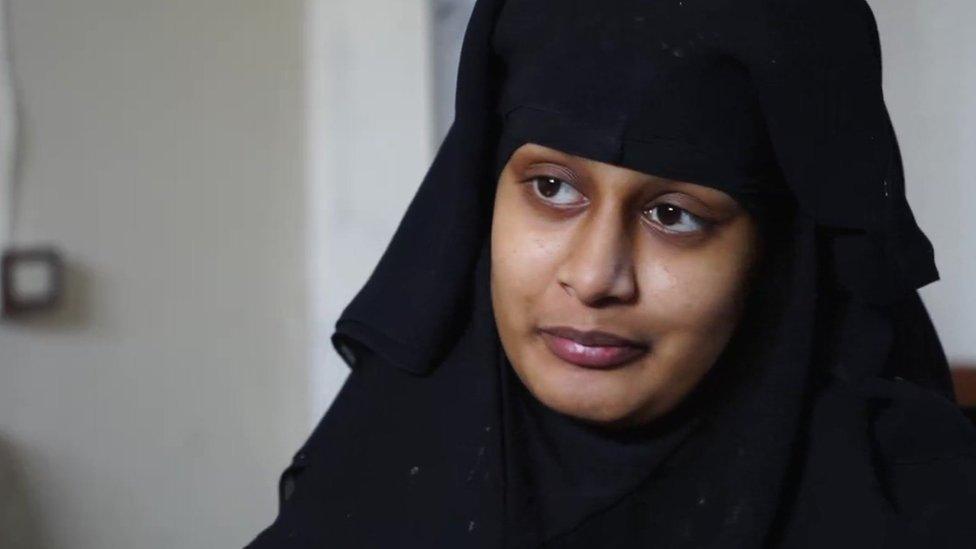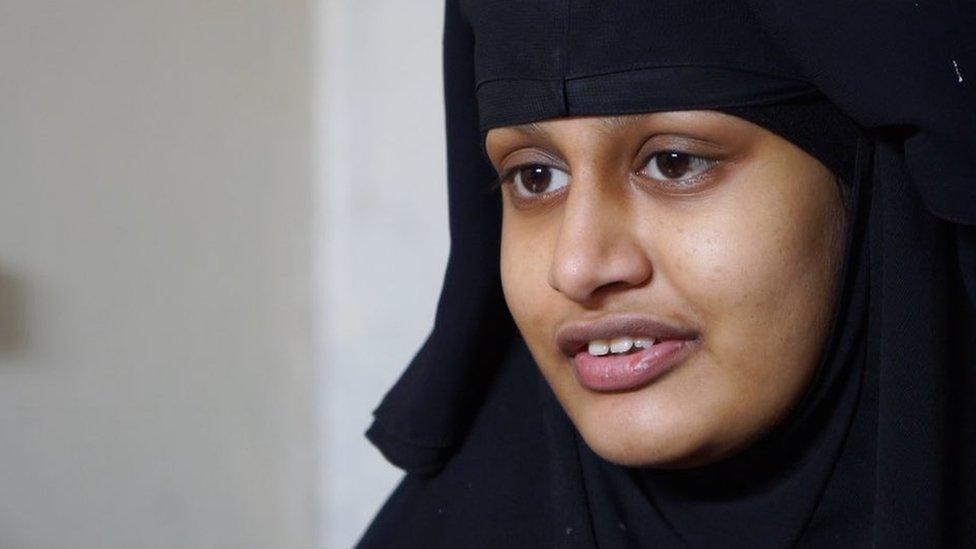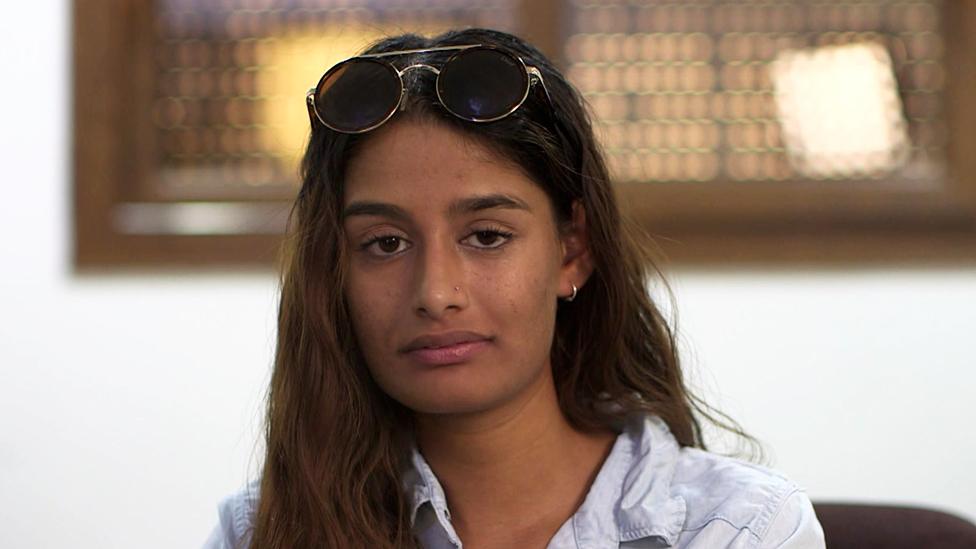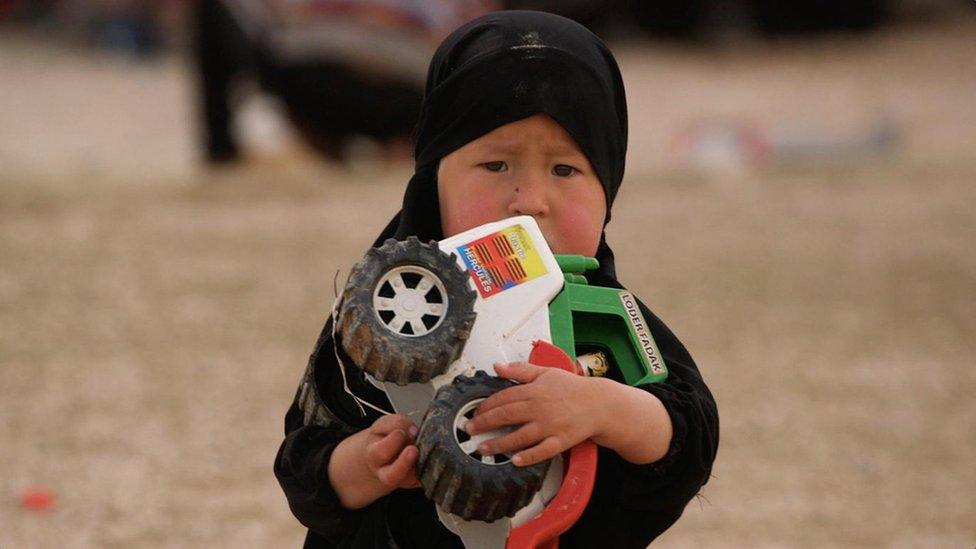Shamima Begum: Bid to return in citizenship fight goes to Supreme Court
- Published

The case of runaway Shamima Begum, who is fighting to return to the UK from Syria, will go to the Supreme Court.
The Court of Appeal decided that the case raised a point of law of public importance that only the Supreme Court can resolve.
Earlier this month, three Court of Appeal judges ruled Ms Begum should be allowed back to London to fight for the return of her citizenship.
The government said that decision was deeply flawed.
Ms Begum, now 20, was one of three schoolgirls who left London to join the Islamic State group in Syria in 2015.
After she was found in a refugee camp in 2019, her British citizenship was revoked by former Home Secretary Sajid Javid on security grounds.
Separately, the court has revealed that the Sun newspaper will be referred to the Attorney General after it obtained a copy of the Court of Appeal's draft judgement - or its "essential contents" - in advance of it being handed down on 16 July.
It had been given to the parties involved on 9 July.
Lady Justice King, the head of the panel of three judges, said they were referring the newspaper to the Attorney General because of a potential contempt of court in publishing a story about the judgement - seemingly leaked from government - before it was announced in court.


The Court of Appeal's move shows it thinly-disguised anger at the apparent government leak of its confidential judgement to The Sun, a cardinal sin against the independence of the courts.
Ms Begum's lawyers say the leak allowed ministers a "first strike" in setting the agenda over their client's fate - rather than allowing justice to take its course.
Draft judgements are typically shared among a tight group of those involved in a case so that corrections can be made and, where necessary, to allow them to prepare for their next move. The draft in this case also included confidential information about Ms Begum's situation that the court had already decided should not be made public.
Sir Jonathan Jones, the head of the government legal department, is now under pressure to identify who leaked it and report that finding back to the judges. There will only be a handful of people inside the Home Office or elsewhere in Whitehall who knew the outcome.
But there is also pressure for Attorney General Suella Braverman. She is simultaneously legally responsible for any decisions to pursue newspapers for contempt of court - and a cabinet minister.
And that means her decision on this matter will face the utmost scrutiny.

The judge also granted Ms Begum's lawyers permission to challenge a decision that the absence of a fair and effective appeal over the citizenship decision did not necessarily mean it should be restored - subject to the Supreme Court accepting that part of the case.
Sir James Eadie, representing the Home Office, said earlier there was a "big issue at stake" in the case, to decide what should happen when someone cannot have a fair appeal over being stripped of their citizenship as a "result of going abroad and aligning with terrorist groups".
He said it was "an issue of real pressing public importance" which was "perhaps the central democratic issue of our times".
Related topics
- Published16 July 2020

- Published25 March 2024

- Published12 April 2019
